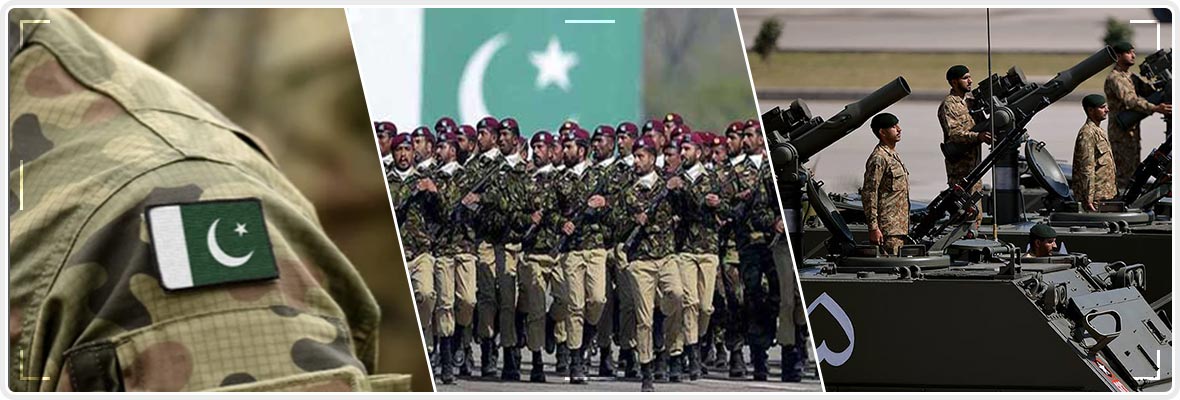
Table of Contents
The Pakistani army ranks among the most powerful Military in the world. Pakistan’s military ranks among the top ten in the world in terms of capabilities and performance.
According to detailed information, the ranking of the most powerful forces in the world was announced in 2021.
The 2021 Global Firepower Index considers the Pakistani army one of the ten most powerful forces in the world. Previously, the Pakistani military ranked 15th.
The ranking is based on more than fifty factors. These factors range from the size of the military to a country’s financial situation, geographic location, etc.
Among the military powers, the United States ranked. First, Russia ranked second, China ranked third, India ranked fourth, and Japan ranked fifth.
Except for Pakistan, the ranking of the 15 best military forces in the world has not improved.
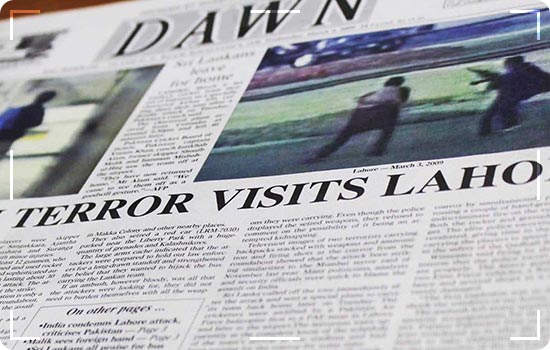
Pakistan’s 10th Most Powerful Military In World
In recent years, Pakistan’s military strength has dramatically increased. According to the details in the classifications related to the various sectors, the Pakistani army has a workforce of 654,000. In this regard, Pakistan ranks sixth in the world. The number of people in the country’s military that have reached the age of enlistment is 43,000, 27,000, and 620,000 each year, while Pakistan ranks fourth in the world.
According to published classification details, although it lags behind many other countries in terms of financial resources, the Pakistani military ranks among the top ten in the world regarding capabilities and performance. It should be pointed out that in recent years, Pakistan’s military power has dramatically increased. Pakistan lags behind Iran, Indonesia, Israel, and Canada.
In the rankings, Turkey, Italy, Egypt, Iran, Germany, Indonesia, Saudi Arabia, Spain, Australia, Israel, and Canada are behind Pakistan. In 2021, Egypt, Germany, Israel, North Korea, South Africa, Myanmar, Colombia, Romania, Mexico, Peru, Denmark, Iraq, Syria, Angola, and Bulgaria were among the most powerful countries in the world.
Pakistan has acted as a lever to make peacekeeping more effective, more responsible, better able to protect civilians and make peacekeeping forces indispensable for achieving peace.
Although the report does not reflect the exact location due to the limitations of the current research, the statistics provided in the report clearly show that the situation in Pakistan has improved. According to the GTI report, Pakistan’s ranking has risen from fifth (2019) to seventh (2020).
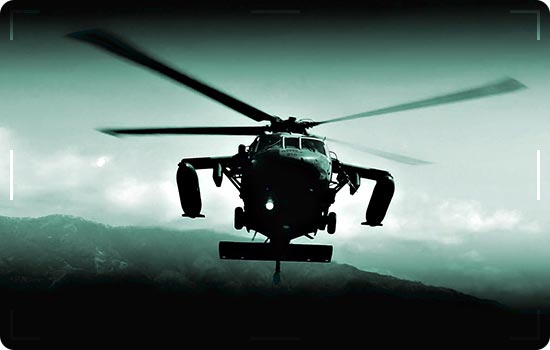
Pakistan’s 10th Most Powerful Military In World
Now, this is a significant change. A country formerly known as the centre of terrorism, without any external help, has become one of the countries with the most experience in combating terrorism by itself. The question is, how the country did it? In recent years, a country with the image of “the most dangerous place” was full of tourists in 2020. That’s why Pakistan is called “the favourite tourist destination around the world” by many organizations.
The reduction in terrorism in Pakistan can be attributed to the tough decisions of the political leaders of Pakistan’s military and other law enforcement agencies (LEA) in general and counter-terrorism operations. Since 2001, the Pakistani army has launched a series of actions to curb terrorism and set government records.

Tea is fantastic
These actions include Operation Al Mizan (2002-2006), Operation Rah-Haq (November 2007), Operation Sher e Dil (September 2008), Operation Zalzala (2008-2009), Siraat-e-Mustaqeem Operation (2008), Operation Rah-Raast (May 2009), Operation Rah-e-Nijaat (October 2009), Operation Koh-e-Sufaid (July 2011), Zarb-e-Azb Operation (2013), followed by Operation Raddul-Fassad, launched on February 22, 2017.
The Federal Government Is Taking Concrete Steps To Boost Tourism
Pakistan’s missile program has also achieved significant milestones. Pakistan tested the NASR ballistic missiles on January 24 and 31, the Shaheen missile system on May 23, the Ghaznavi missile system on August 29, and the Shaheen 1 successfully tested on November 18. These missiles provide Pakistan with a comprehensive and effective deterrence and response. Indian unpopular doctrine.
Pakistan won the war on terror with the sacrifice of the Pakistan Armed Forces. Now it is the public’s responsibility. It should play a role in maintaining peace and respecting the sacrifices of our martyrs.
Since independence, Pakistan’s defence policy and military expenditures have been concentrated in India. However, India condemned China for starting a traditional and nuclear arms race in South Asia. Because India and Pakistan are trapped in myopia devices that require conventional military definitions and methods to achieve national security, a lack of confidence, coupled with perceived threats and security dilemmas, has triggered an ongoing arms race across the subcontinent.

Pakistan is the 10th Most Powerful Military In World.
As a result, the military expenditure and budget for developing the military-industrial complex have doubled in recent decades. Since the beginning of the 21st century, due to Pakistan’s economic downturn, India’s military spending has greatly exceeded Pakistan’s. The growing Indian economy has contributed to the growth of military expenditures. India is planning significant investments in new weapons and other military equipment. According to reports, the total investment between 2012 and 2021 is between US$10 and US$150 billion.
Pakistan spends nearly 3% of its GDP on national defence. Therefore, 97% of resources can be used more effectively by reducing the waste of resources and improving skills and a sense of responsibility at all levels. The 3% tax rate can boost the economy, mainly through remittances. Maintaining an advanced army is arduous, and war may be more expensive than ensuring the country’s defence capabilities. Therefore, for a country like Pakistan that has invested a lot of money in defence infrastructure, defence spending can be achieved through innovation. Provide the basis for a reasonable industrial plan, provide security and protection for the country, and create options for economic improvement
Since terrorists attacked the Sri Lanka team in Lahore in 2009, it is not uncommon for major international cricket teams to refuse to visit Pakistan.
The Sri Lankan team was heading to the Gaddafi Stadium in a test match against Pakistan when the terrorists were believed to be the Taliban and Lashkar-e-Jhangvi (LeJ) shot wantonly. The brutal attack resulted in eight deaths and injuries to seven Sri Lankan players and employees.
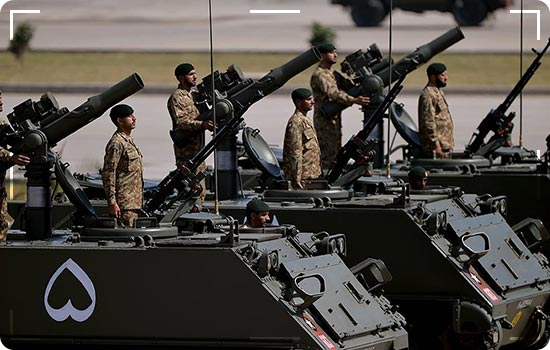
Pakistan is the 10th Most Powerful Military In World.
Since then, international cricket has escaped from Pakistan without a high-level team coming to Pakistan for a full tour. However, Sri Lanka returned to Pakistan in October 2017 to hold a one-off match at T20 in Lahore, where the attack took place eight years ago.
Nevertheless, even after the 2009 attacks, the security situation in Pakistan is far from entirely normal.
Interestingly, this development came days after U.S. President Donald Trump canceled peace talks with the Taliban after the movement claimed responsibility for the car bomb explosion in Kabul on September 5, including Twelve American soldiers and one soldier were killed. Romanian.
The President of the United States also canceled separate meetings held at Camp David with representatives of the Taliban and Afghan President Ashraf Ghani.
The U.S. Special Representative for Afghanistan Reconciliation, Zalmay Khalilzad, announced that the Trump administration has agreed “in principle” to withdraw more than 5,000 soldiers from Afghanistan in exchange for Taliban guarantees.
The organization criticized Trump’s decision and vowed to conduct a “jihad” against “foreign occupation” in Afghanistan as Afghanistan prepares for the presidential election later this year.
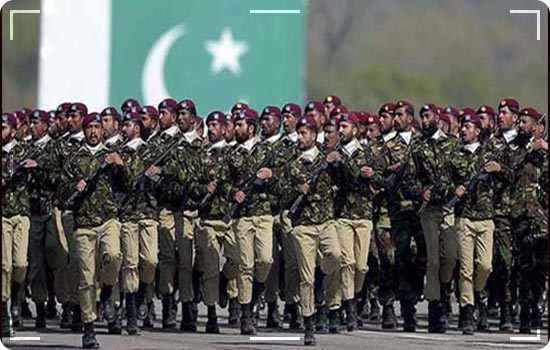
Pakistan is the 10th Most Powerful Military In World.
The talks between the United States and the Taliban were canceled when Pakistan, which had supported the organization for many years, refused to abandon terrorism as a national policy despite substantial international pressure.
The adverse effects of the postponement of peace talks are likely to be reflected in Pakistan, which has become a victim of terrorist attacks. Even the country’s Prime Minister Imran Khan recently admitted that between 30,000 and 40,000 terrorists in the country “have been trained and fought in parts of Afghanistan or Kashmir.”
Pakistan has always claimed to be a victim of terrorism. Given that the country continues to harbor and sponsor notorious terrorist organizations, this fact has not yet been sanctioned by the international community.
Islamabad has been urging terrorist organizations to turmoil in Kashmir, even though the Islamic State has increased its satanic propaganda on Kashmir since India revoked its special status in the region in August.
As a result, when the world continued to boycott their activities in various regions, they refused to read the writing on the wall and continued to play with ducks and ducks, thinking that they had deceived the world with pious words.
With a strong military, we can show our accurate picture. Many tourists worldwide travel to Pakistan, a big name from Turkey, China, the US, the UK, and many others. Many security experts and analysts have long criticized the negotiations between the United States and the Taliban and questioned the absence of the Afghan government to negotiate, thus overcoming the same goal of the peace process established by Kabul and supported by the international community.
It helped maintain stability and build peace across the country with an additional lens to prevent militancy and the resurgence of terrorism. Now, while the government is breathing peacefully, it is time to integrate the tourism strategy robustly in parallel so that we do not allow the progress so far to be curtailed.
Since 2017, Saba Ghani has been serving as the talented and dedicated chief content writer for Pakistan Tour and Travel & EMHI Solutions. With her exceptional writing skills and in-depth knowledge of the travel industry, she has been instrumental in crafting engaging and informative content that captivates the audience. You can catch her at [email protected] or Twitter
Best Pakistan Tour Packages from Islamabad & Karachi